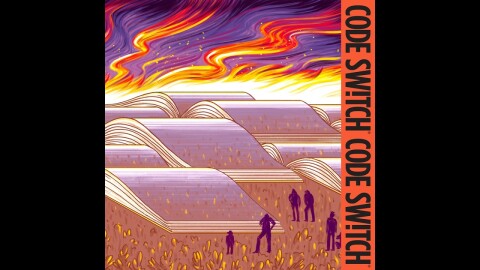-
Author Mike Curato wrote Flamer as a way to help young queer kids, like he once was, better understand and accept themselves. It was met with immediate praise and accolades — until it wasn't.
-
The promise of "40 acres and a mule," is often thought of as a broken one. But it turns out, some freed people actually received land as reparations after the Civil War.
-
Daniel Olivas's novel puts a new spin on the age-old Frankenstein story. In this retelling, 12 million "reanimated" people provide a cheap workforce for the United States...and face a very familiar type of bigotry.
-
This week on the podcast, we're revisiting a conversation we had with Ava Chin about her book, Mott Street.
-
In the wake of October 7, and the bombardment of Gaza by the Israeli government, many American Jews have found themselves questioning something that had long felt like a given: that if you were Jewish, you would support Israel, and that was that. But as more Jews speak out against Israel's actions in Gaza, it's exposing deep rifts within Jewish communities – including ones that are threatening to break apart friendships, families, and institutions.
-
The Panama Canal has been dubbed the greatest engineering feat in human history. It's also (perhaps less favorably) been called the greatest liberty mankind has ever taken with Mother Nature. But due to climate change, the Canal is drying up and fewer than half of the ships that used to pass through are now able to do so.
-
What's a portrait of Frederick Douglass doing hanging in an Irish-themed pub in Washington, D.C.? To get to the answer, Parker and Gene dive deep into the long history of solidarity and exchange between Black civil rights leaders and Irish republican activists, starting with Frederick Douglass' visit to Ireland in 1845.
-
Many Lakota people agree: It's imperative to revitalize the Lakota language. But how exactly to do that is a matter of broader debate. Should Lakota be codified and standardized to make learning it easier? Or should the language stay as it always has been, defined by many different ways of writing and speaking?
-
This episode is brought to you by our play cousins over at NPR's It's Been A Minute. Brittany Luse chops it up with New Yorker writer and podcast host Vinson Cunningham to discuss his debut novel Great Expectations.
-
We've probably said it a hundred times on Code Switch — biological race is not a real thing. So why is race still used to help diagnose certain conditions, like keloids or cystic fibrosis?
-
In February of 1942 after the bombing of Pearl Harbor, the U.S. government issued an executive order to incarcerate people of Japanese descent. That legacy has become a defining story of Japanese American identity.
-
To celebrate the history of Black romance, Gene and Parker are joined by reporter Nichole Hill to explore the 1937 equivalent of dating apps — the personals section of one of D.C.'s Black newspapers. Parker attempts to match with a Depression-era bachelor, and along the way we learn about what love meant two generations removed from slavery.

















